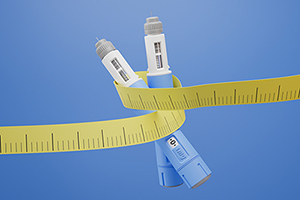



We already know that man-made trans fats are bad, but polyunsaturated vegetable oils are highly volatile, especially when subjected to heat extraction, processing and cooking. This propagates oxidation and free radicals. Of these industrially processed oils, some of the worst are safflower, sunflower, corn, soybean, cottonseed and grapeseed oil. Yes, although grapeseed oil has a nice high smoke point, which makes it amenable to high temperature cooking, it’s still highly polyunsaturated, making it volatile and prone to free radical damage. Moreover, the high omega-6 content of these oils renders them pro-inflammatory.
 American Heart Association and the Dietary Guidelines have it wrong: These are not heart-healthy fats.
American Heart Association and the Dietary Guidelines have it wrong: These are not heart-healthy fats.
Cooking in monounsaturated oils such as olive oil and canola oils aren’t that much safer. Best to drizzle a small amount of olive oil on food AFTER it’s been cooked.
Because extraction of oil from seeds and plants causes oxidation and rancidity, we have to re-evaluate our common cooking methods and move away from sautéing and frying in oils. Better to braise, steam, simmer and roast.
Our fats and oils should be eaten before they can oxidize, in their original packaging such as seeds and plants.
Mary G. Enig, Ph.D
In other words, don’t drizzle avocado oil on your salad; add some sliced avocado instead.
To your health!
Though we think of declining estrogen as the hallmark of menopause, it's actually common for…

Up to 12 percent of Americans have ulcers at some point in life. Peptic ulcers…
Gallbladder disease is a modern illness. An estimated 20 million Americans have gallbladder disease. The…

New, more powerful weight loss drugs: Drugs like Wegovy, Rybelsus, Ozempic and Mounjaro/Zepbound are revolutionizing…

According to the Lancet, autoimmune disease affects one in ten people globally and it’s now…

This past week we were regaled with headlines like: High levels of niacin may increase…

Leyla Weighs In: The Erosion of Trust in Nutritional Research

Our virtual voicemail is open 24/7, so there's no need to wait to submit your questions for Dr. Hoffman. Leave a message, and you may hear your question featured on the Intelligent Medicine radio program!